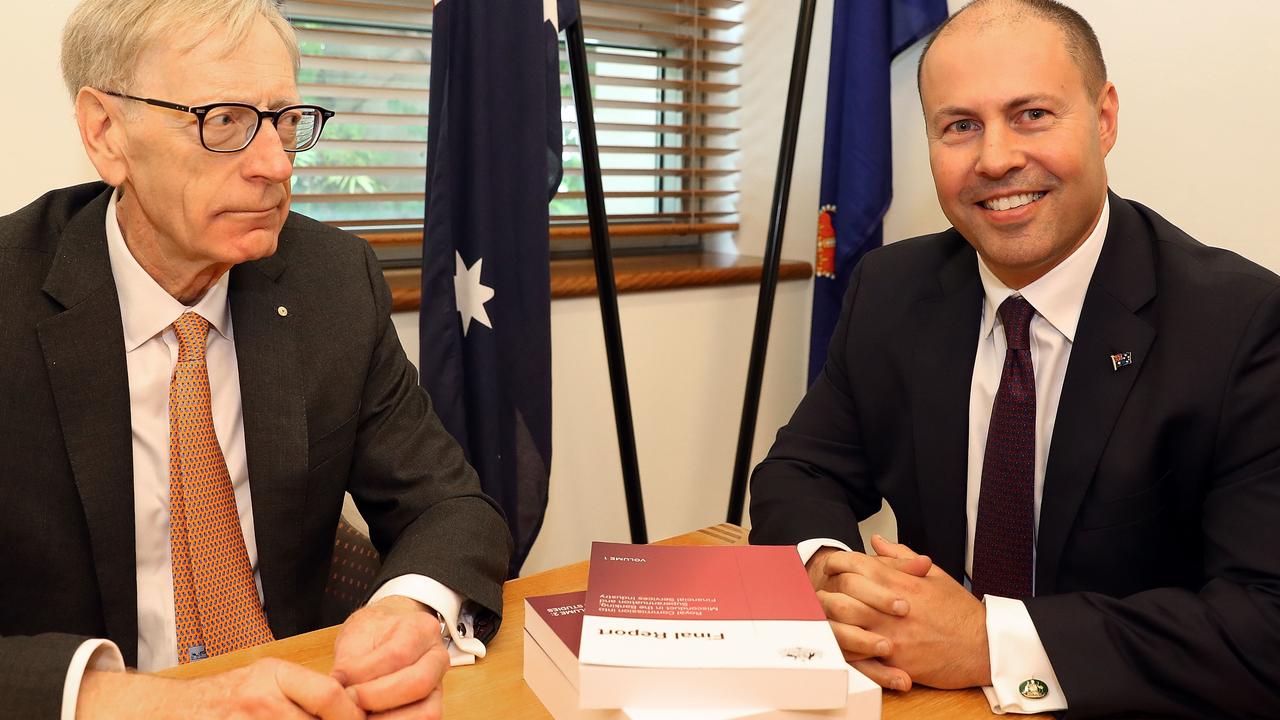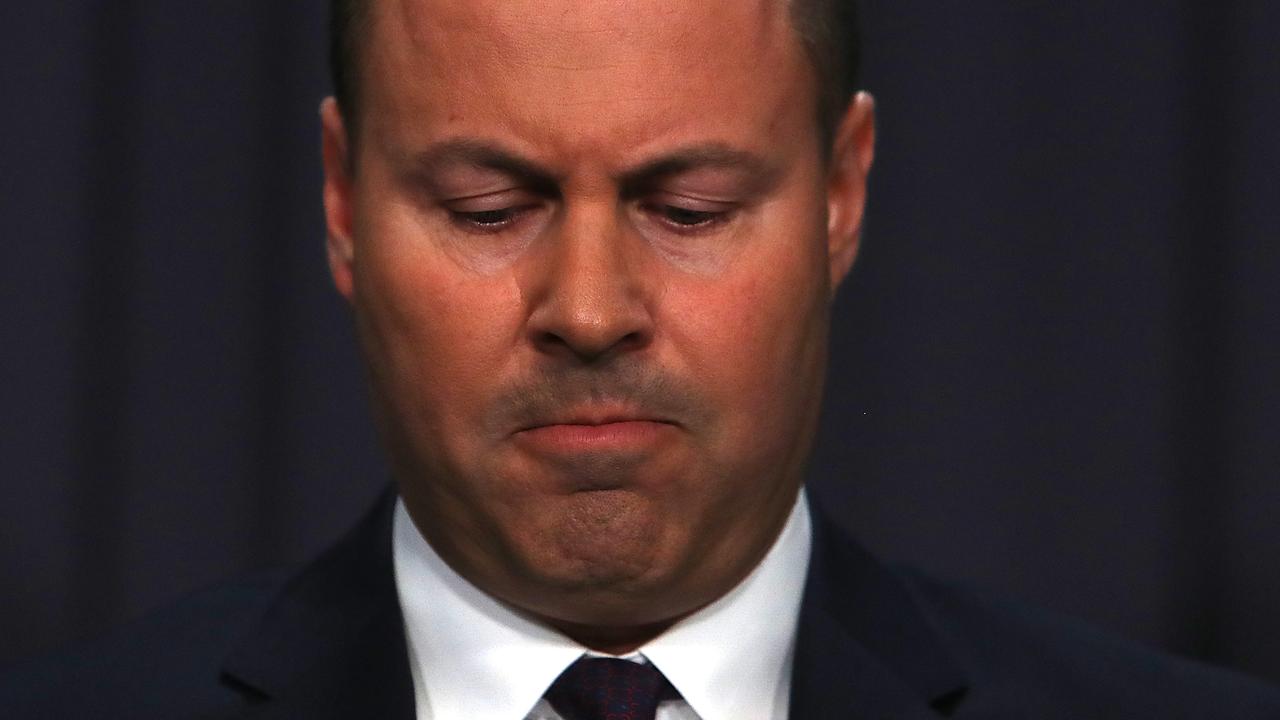Most disturbing parts of the banking royal commission’s final report
It is difficult to read without a shudder. Amid all the revelations in the bombshell banking royal commission report, there was one that stood out.
ANALYSIS
Official reprimands and class actions probably won’t deal completely with the grotesque business practices revealed by Commissioner Kenneth Hayne.
There will be pressure from a shocked public for individual criminal charges to ensure the law cannot be broken without penalty in big business.
As Mr Hayne said: “There can be no doubt that the primary responsibility for misconduct in the financial services industry lies with the entities concerned and those who managed and controlled those entities.”
Not all cases involve anything like criminal breaches, but they do display a profound collapse in moral business judgment.
It is difficult to read without a shudder the case of the “careless” $100 million stiffing of bank customers which drew particular attention from Mr Hayne.
It provided him an instance of both questionable banking practices and the reluctance of some executives to grasp the possibility of dubious business behaviour.

It involved the top tier of the National Australia Bank.
“I thought it telling that (NAB CEO) Mr Thorburn treated all issues of fees for no service as nothing more than carelessness combined with system deficiencies when the total amount to be repaid by NAB and NULIS on this account is likely to be more than $100 million,” Mr Hayne wrote in his report.
“I thought it telling that in the very week that NAB’s CEO and Chair were to give evidence before the Commission, one of its staff should be emailing bankers urging them to sell at least five mortgages each before Christmas.
READ MORE: Bombshell report’s key recommendations
READ MORE: NAB singled out for brutal slapdown
READ MORE: Bank scandal: Call for criminal charges
“Overall, my fear — that there may be a wide gap between the public face NAB seeks to show and what it does in practice — remains.”
It was an example of how a dishonest billing of customers by some finance companies fitted neatly with predatory and — to them — acceptable business practices.
The depth of reliance on shoddy fiddles, encouraged in some companies, was such that Mr Hayne had to outline some basic ethical standards in his report, as if to inform rather than remind the worst subjects of his inquiry.
The institutions might be thriving but only because they chose to run on bankrupt business principles.

Further, the warped business culture identified by Mr Hayne could not be ignored by Treasurer Josh Frydenberg, nor could he hope for correction through self-regulation.
The government has agreed to “take action” on all 76 of Mr Hayne’s recommendations but still has to explain why some of the grotesque practices escaped its attention until exposed by a royal commission it long didn’t want.
On that matter, Mr Frydenberg attempts to blame someone else for neglect.
“On coming into office in 2013, the government inherited a financial system in need of reform. And to reinforce that, some preliminary steps had been taken pre-royal commission,” he said.
“In 2013 we established the Financial System Inquiry (FSI), a root and branch examination of Australia’s financial system.”
But he was upfront in recognising the grubby branches of the financial services industry the royal commission exposed, and the effect this has had on the fundamental rights of consumers.
“As we have heard, too often the conduct within our financial institutions has been in breach of existing laws and fallen well below community expectations,” Mr Frydenberg said.
“The price paid by our community has been immense and goes beyond just the financial.
“Businesses have been broken, and the emotional stress and personal pain have broken lives.”
And as a measure of the financial damage to customers, the government will for the first time establish a compensation scheme of last resort “to ensure that consumers can have their case heard and be confident that where compensation is owed it will be paid”.
The money will come from the industry in an act of mass atonement.

And that is warranted, as Mr Hayne pointed out in comments which appeared to be aimed at informing some business types — not reminding them.
“Rewarding misconduct is wrong,” he said, as if this was news to some.
“Yet incentive, bonus and commission schemes throughout the financial services industry have measured sales and profit, but not compliance with the law and proper standards. Incentives have been offered, and rewards have been paid, regardless of whether the sale was made, or profit derived, in accordance with law.
“Rewards have been paid regardless of whether the person rewarded should have done what they did.”
He further said “too often, financial services entities that broke the law were not properly held to account”.
“Misconduct will be deterred only if entities believe that misconduct will be detected, denounced and justly punished.
“Misconduct, especially misconduct that yields profit, is not deterred by requiring those who are found to have done wrong to do no more than pay compensation. And wrongdoing is not denounced by issuing a media release.”
Mr Hayne did not recommend any individual charges, but that section of his report could be used to justify them.




